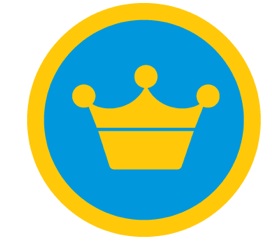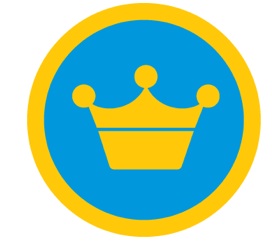
Foursquare, the geo-mobile startup everybody tried to invest in or buy, now has officially closed its Series B funding round. The “wire transfer heard ’round the world,” as board member Bryce Roberts puts it, was for $20 million, giving the company a $95 million pre-money valuation. The round was led by Andreessen Horowitz, as previously reported, with existing investors Union Square Ventures and O’Reilly AlphaTech Ventures participating.
CEO Dennis Crowley says the fundraising was “a lot of work” and plans to use the money to staff up and keep adding to the product. “It’s all about building a team that can churn out new product,” he tells me. “We’ve been dreaming up these things for the past 10 years and now we have the opportunity to build them all.” The money will also help pay for more office space. His 27 employees are already too big for the startup’s current New York City offices, and Foursquare is about to move into new digs upstairs in the same building. “It’s awesome,” he says, “we can hear them building it upstairs right now!” He plans on hiring a lot more engineers.
The whole funding process has been drawn out. Crowley was deciding between suitors last Spring, when buyout interest started to come, first from Yahoo, and then from Facebook. The VC deal was put on hold. But Andreessen Horowitz felt so yanked around by the process that partner Ben Horowitz very publicly “withdrew” from the bidding. That turned out to be nothing more than a rebuke. And now Horowitz says of course they invested. Foursquare has a “great Founder/CEO,” a “killer product,” and is going after a “gigantic market.” In Crowley, specifically, Horowitz sees the leadership traits they like to invest in: a CEO who is a “keeper of the product vision.”
Selling to Yahoo would have been a mistake. Facebook would have been more interesting. In any case, Foursquare will go it alone for now, and develop the product unencumbered by a larger organization with a different set of goals. But remember, Marc Andreessen is on Facebook’s board, so that avenue is not entirely shut off.
Leaving Foursquare independent will allow it to find its own way. The geo check-in service that lets you broadcast your location to all your friends is hitting a nice growth curve, adding 15,000 users a day. It is now up to 1.8 million registered users, up from one million just last April. Why mess up a good thing when you can buy it later?
Horowitz dismisses the notion that Crowley picked them to get to Facebook later. “I think that is reading too much into it,” he says. “Dennis has a primary relationship with Mark Zuckerberg. He doesn’t need us or Marc to do that. The reason for them going with us, at least in my belief, is that they thought we would help them go from a great product to a great company.”
Walking away from M&A negotiations was not easy. “It is a really cathartic and emotional decision to make,” says Horowitz. “If you look at what those guys had to walk away from—generations of your people being set financially in order to try to build a great company—that takes a lot of courage.”
As far as making Foursquare a great company that makes a lot of money, Horowitz says the “monetization” opportunities are “very obvious and straightforward.” There are many ways Foursquare can start charging businesses once it reaches a larger scale. “Would you pay to know your most frequent customer?,” Horowitz asks rhetorically. “Probably.” The bigger issue is how to take Foursquare from nearly 2 million users to tens of millions of users and beyond.
The value of Foursquare is not location, says Horowitz, which he thinks will become “a feature of maybe every product.” The real value is in the network effects that start to unfold as more people you know and more places you go are all on Foursquare. “If everyone you know is on Foursquare, everywhere you go, the more valuable it is,” he points out. In other words, Foursquare isn’t only about the check-in. That is only the starting point.
